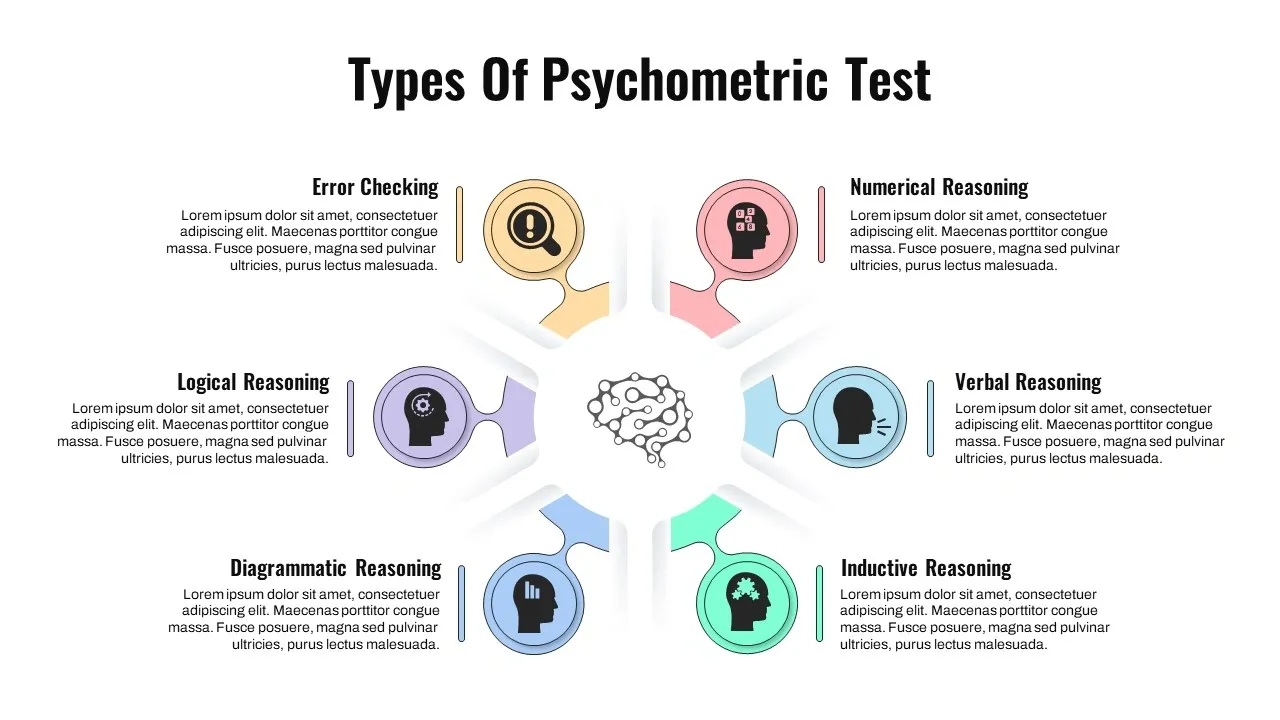Why Psychometric Tests Are Your Secret Weapon for Career Success in 2025

Psychometric tests for career counseling have become the secret weapon of successful organizations worldwide. The numbers tell an interesting story – these assessments are used by more than 75% of UK’s Times Top 100 companies and over 80% of Fortune 500 companies in the USA. Companies aren’t choosing these tools randomly – they’ve evolved into precise measurements of human potential and priorities.
My experience shows how psychometric testing has grown from a specialized tool into a core part of career development. Students looking at career options and professionals aiming for advancement can benefit from these tests. They reveal hidden qualities and traits that interviews or resumes might miss. These assessments also help companies find candidates who match their culture while measuring general intelligence accurately.
More students and recruiters now rely on psychometric tests, and with good reason too. Research backs up how these assessments help guide careers effectively. They make teams work better together, boost performance, and create lasting results. In this piece, I’ll break down why these tests should be your first choice for career clarity and professional growth in 2025.
What Are Psychometric Tests and Why They Matter in 2025
The story of psychometric assessments goes back to the late 19th century. This marked the start of a scientific way to measure human potential. Psychometric tests are standard procedures that measure people’s behavior and mental capabilities. They describe these traits using scores or categories. The word “psychometric” comes from Greek words for mental and measurement. These tests give measurable results about cognitive abilities, emotional intelligence, personality traits, and work priorities that we can’t see directly.
Definition and origin of psychometric tests
Psychometric testing started between 1886 and 1889, when James McKeen Cattell set up the first laboratory at Cambridge University. Francis Galton, known as “the father of psychometrics,” first defined psychometry in 1879. He called it “the art of imposing measurement and number upon operations of the mind”. Galton’s anthropometric measures and Cattell’s mental tests looked at sensory and motor skills.
Many scientists helped grow this field. Charles Spearman brought in the idea of general intelligence or ‘g’ factor in 1904. A year later, Alfred Binet and Theodore Simon created the first intelligence test. The Binet-Simon scale measured a child’s attention, judgment, knowledge, and memory.
How they evolved into career tools
Psychometric tests changed from just measuring intelligence to becoming career tools after World War I. The U.S. Army used the Army Alpha and Beta tests to sort soldiers based on their cognitive abilities. IBM started using these methods in 1921. They saw a 30% boost in efficiency when they used these tests in hiring.
Through the 20th century, these assessments grew to include:
- Aptitude tests measuring cognitive abilities and problem-solving skills
- Personality assessments looking at behavioral traits and work styles
- Interest inventories finding career priorities and motivational factors
Holland’s Occupational Themes came out in 1959. It grouped jobs into Realistic, Investigative, Artistic, Social, Enterprising, and Conventional (RIASEC) codes. These codes are the foundations of career assessment. Today’s career development tools look at personality traits and work values, not just interests.
Why they are more relevant than ever
Psychometric assessments play a vital role in our fast-changing job market in 2025. The World Economic Forum’s ‘Future of Jobs 2023’ report shows that half of all employees will need new skills by 2025. Analytical thinking, creativity, and flexibility top the list of wanted skills. These tests give a solid way to spot these cognitive skills.
On top of that, these tests bring real benefits to today’s workplace:
They cut hiring costs—this matters because a ‘bad hire’ costs companies 30% of each hire’s yearly salary. In fact, research shows companies can predict over 70% of performance by using the right assessment tools.
The Global Psychometric Market was worth about USD 3.00 billion in 2021. It’s expected to grow at 6.5% yearly from 2022 to 2030, suggesting more companies are using these tests. Yes, it is true that 82% of employers now use some type of psychometric testing to review potential candidates.
These assessments do more than help with hiring. They help people learn about their hidden talents and abilities. They also show what working styles and environments suit them best. Job seekers who used these tests felt 50% more confident about their career choices.
Types of Psychometric Tests That Shape Career Paths

Image Source: SlideBazaar
The 2025 job market demands a good grasp of psychometric assessments that can shape your career path. A recent study shows 75% of employers use some type of psychometric test when hiring. These tools have become crucial if you want to move up in your career.
Aptitude tests
Aptitude tests show how well you can learn new skills and use your brain power. These tests look at how you handle information and tackle problems instead of checking what you already know. Companies often use them at the start of hiring to find candidates who can reason well.
Aptitude assessments typically include:
- Numerical reasoning: Shows how well you work with numbers and data – perfect for finance and analyst jobs
- Verbal reasoning: Tests your grasp of written content and your ability to draw sound conclusions
- Abstract/spatial reasoning: Checks if you can spot patterns and follow logical rules, which matters a lot in technical roles
- Logical reasoning: Looks at your methodical thinking without using diagrams
- Diagrammatic reasoning: Tests how you solve problems using visual information
Remember that these tests are built so all but one of these questions can be finished – both speed and accuracy count.
Personality tests
Personality tests (or occupational tests) don’t have right or wrong answers. They show your natural behaviors, what drives you, and how you work with others. These insights help figure out if you’ll fit well in specific teams or company cultures.
The Myers-Briggs Type Indicator (MBTI) sorts people into 16 different personality types. The High Potential Trait Indicator (HPTI) spots leadership potential by looking at personality traits. These results help both employers and job seekers find the right match.
Interest and values assessments
Interest tests look at what activities, topics, and work settings you prefer. The U.S. Department of Labor offers tools like the Interest Profiler and Work Importance Locator. These help you discover your work interests and what matters most to you on the job.
Values assessments dig into your core beliefs and what guides your choices. The Holland Code (RIASEC) groups careers into six types: Realistic, Investigative, Artistic, Social, Enterprising, and Conventional. This system came out in 1959 and still shapes career assessment today.
Skills-based tests
Skills tests measure what you can do right now in job-related tasks. Unlike aptitude tests that look at potential, these focus on your current abilities. The tests cover everything from technical skills to soft skills like communication and leadership.
Game-based assessments (GBAs) show how skills testing has evolved. These digital tools work on computers or phones and welcome everyone, whether you play games or not. Companies love them because more candidates finish them and give positive feedback.
Combination tests for holistic profiling
Career experts and companies now see the value in mixing different types of assessments. Research shows using multiple tests can spot talent 30% better. A mix of aptitude, personality, and situational judgment tests paints a fuller picture of someone in just 30 minutes.
IBM tried this combined approach and saw their employee retention jump by 20% in the first year. Companies using multiple psychometric tests see a 15% boost in productivity because people end up in roles that match their strengths.
This all-encompassing approach leads to customized career guidance and growth plans based on a complete view of your skills, priorities, and potential.
Top 5 Benefits of Psychometric Tests for Career Success
Psychometric tests offer more than just technical insights. These assessments bring remarkable benefits to anyone looking to move up in their career. Here are five ways these tests can help you succeed professionally in 2025.
Gain self-awareness and clarity
Psychometric assessments encourage self-awareness—”the ability to reflect on and accurately assess one’s own behaviors and skills and the impact they have on others”. Research shows a clear link between self-awareness and job performance. Studies reveal that people who take these assessments show a 60% increase in self-awareness. You’ll understand your personality, behaviors, and emotional responses better, which helps you employ your strengths and work on areas that need improvement.
Make informed academic and career decisions
These tests help uncover natural talents that might stay hidden otherwise. The National Institutes of Health reports that 80% of students who used these assessments gained better clarity about their strengths and weaknesses, which led to better career choices. The tests show your ideal working style and environment, including how you work in teams and communicate. This clarity helps remove the uncertainty many people face when choosing their career path.
Find hidden strengths and interests
Psychometric assessments excel at spotting hidden talents. Everyone has unique abilities they might not recognize. These tests highlight special qualities you can use to grow professionally. Companies can place people in roles where they shine, which matters even more for neurodivergent individuals who often excel at problem-solving, attention to detail, and creative thinking.
Build confidence through evidence-based insights
Seeing solid proof of your skills through these assessments helps you face career changes with confidence. This boost in confidence proves valuable during interviews and networking events. Research shows that people who use these assessments are 60% more likely to report job satisfaction. This suggests that matching the right person with the right career leads to better engagement and fulfillment.
Track progress and adapt over time
You can monitor your professional growth with psychometric tests. Regular result reviews help measure improvement in specific areas. This tracking creates a clear path to reach career goals by setting SMART objectives and establishing milestones. Modern cloud systems let you keep an eye on your skills and priorities long-term, which helps guide your career path thoughtfully.
How Psychometric Tests Help in Career Counseling
Career decisions shape our future paths significantly. Psychometric tests have become great tools for career counselors worldwide. These scientific assessments review students’ interests, talents, skill-sets, personality traits, and decision-making approaches. They provide evidence-based guidance instead of relying on guesswork.
Role in stream and course selection
Psychometric tests for career counseling work as stream selector tests. They help identify emotional intelligence and critical thinking capabilities. The CAT4 (Cognitive Abilities Test) helps students transition from secondary school to university or the job market. These assessments show a student’s strengths and weaknesses. They are the foundations for stream recommendations that counselors provide. This scientific approach removes confusion by finding streams that line up with skills.
Avoiding career mismatches
Career assessment tests solve career-related questions. They help you learn about your strengths and match them to suitable career paths. Many people feel lost in their careers. Taking a psychometric test helps students identify confusion about their future direction. These tests lower the chances of trial-and-error approaches. They guide you toward careers that bring success. They calculate how well intended careers line up with your profile and help estimate involvement and success prospects.
Supporting long-term planning
Psychometric tests help at key decision points in education. Schools and colleges use these assessments to select streams, recommend college majors, and match career paths with academic strengths. The tests create customized reports that highlight strengths, weaknesses, and skill gaps related to intended careers. Students can develop plans to build skills needed to excel in their chosen careers.
Free and paid options for students
Students can access these insights in several ways. Simple psychometric tests like the stream selection test for Class 10 students come free with limited-time access. These tests take 10-15 minutes and give basic insights. Detailed paid options offer deeper analysis in multiple areas. You can book a slot with me at https://topmate.io/sandeepanand if you want personalized guidance based on psychometric insights. I offer individual career counseling using these powerful assessment tools.
Using Psychometric Tests in Recruitment and Hiring
The recruitment world in 2025 has radically altered toward informed decision-making. Psychometric assessments now lead hiring innovation. Over 80% of Fortune 500 companies use these scientific tools in their hiring processes. These companies realize the potential of transforming their recruitment outcomes.
Why companies use them in 2025
Companies have good reasons to embrace psychometric testing. Studies reveal a remarkable 70% improvement in hiring decisions. Companies using these assessments also see lower recruitment costs. Resumes and interviews alone make hiring decisions prone to subjective judgment and unconscious bias. Psychometric tools provide consistent, objective data that helps employers make better choices about candidates’ suitability. These methods have become standard practice to identify high-potential talent, with 75% of The Times Top 100 companies now using them.
How they improve hiring quality
Psychometric assessments predict future job performance effectively. Pre-employment screening helps companies find trustworthy, conscientious, and courteous individuals. Companies report 40% better retention rates for new hires when they use these tools. These tests measure both technical abilities and soft skills that resumes or interviews can’t capture alone. The assessments provide deeper insights than traditional methods and help determine team compatibility and risk-taking tendencies.
Psychometric tools for hiring and selection
Modern recruitment now includes various assessment types:
- Cognitive ability tests that assess problem-solving and information processing
- Personality assessments like the Work Personality Index that measure workplace behavior
- Reliability inventories identifying trustworthiness and conscientiousness
- Situational judgment tests that assess decision-making in work scenarios
Reducing bias and promoting diversity
Psychometric testing substantially improves fair hiring practices. These standardized assessments give every applicant consistent evaluation. Companies using structured psychometric evaluations are 24% more likely to create diverse workforces. This approach promotes inclusive environments where employees from all backgrounds can thrive.
Conclusion
Psychometric tests have proven themselves as powerful tools for career development and success in 2025. This piece shows how these scientific assessments give analytical insights into our personalities, aptitudes, interests, and skills. They help us understand ourselves better and make smarter career choices based on evidence rather than guesswork.
Fortune 500 companies and educational institutions widely use these tests, which proves their effectiveness. These assessments cut hiring costs, boost retention rates, and create more diverse workplaces. Job seekers and students can get clarity when facing important career decisions and uncover hidden talents they might have missed.
Students selecting a stream, professionals thinking over a career change, or employers building stronger teams can benefit from psychometric assessments. The objective data about your strengths and potential growth areas builds confidence.
Making psychometric testing part of your career strategy could transform your professional future. Book a slot with me to get customized guidance that uses these powerful assessment tools.
Career success depends on understanding yourself and finding paths that line up with your unique combination of traits, skills, and priorities. Psychometric tests give you this vital self-knowledge, making them your secret weapon to thrive professionally in 2025 and beyond.
Key Takeaways
Psychometric tests have evolved from niche assessment tools into essential career development resources, with over 80% of Fortune 500 companies now using them for hiring and talent management.
• Self-awareness drives success: Psychometric tests increase self-awareness by 60%, helping you identify hidden strengths and make data-driven career decisions instead of relying on guesswork.
• Reduce career mismatches significantly: These assessments help avoid costly career mistakes by matching your personality, aptitudes, and interests to suitable roles, leading to 60% higher job satisfaction rates.
• Improve hiring quality and diversity: Companies using psychometric testing see 70% better hiring decisions, 40% improved retention rates, and 24% more diverse workforces through standardized, bias-reducing evaluations.
• Multiple test types provide comprehensive insights: Combine aptitude tests, personality assessments, interest inventories, and skills evaluations for a holistic career profile that guides both academic and professional choices.
• Track progress and adapt over time: Use these tools throughout your career journey to monitor growth, set SMART goals, and navigate transitions with confidence backed by objective data.
In 2025’s rapidly evolving job market where half of all employees need reskilling, psychometric tests serve as your strategic advantage for making informed career decisions and achieving long-term professional success.





